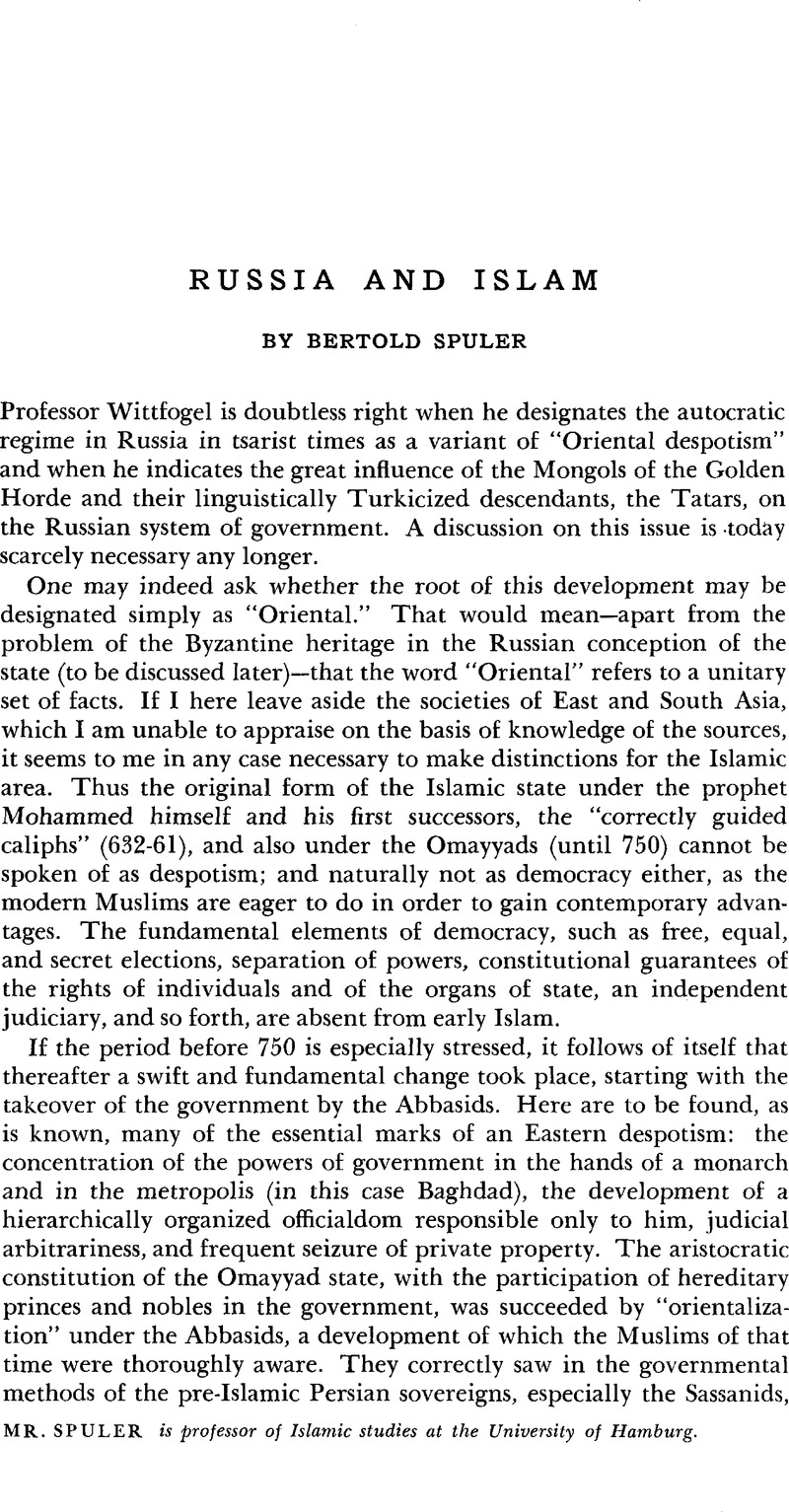Published online by Cambridge University Press: 27 January 2017

1 For details see Bertold, Spuler, “Iran: The Persistent Heritage,” in Unity and Variety in Muslim Civilization, ed. Von Grunebaum, Gustave E. (Chicago, 1955), p. 167–82.Google Scholar
2 See Bertold, Spuler, “Iran and Islam,” in Studies in Islamic Cultural History, ed.Von Grunebaum, Gustave E. (Menasha, Wis., 1955), pp. 47–56.Google Scholar
3
![]() (St. Petersburg, 1914).
(St. Petersburg, 1914).
4 Bertold, Spuler, Die Goldene Horde (Leipzig, 1943; Wiesbaden, 1964), pp. 38–43.Google Scholar
5 Ibid., pp. 399 and 435.
6 See, e.g., Claude, Cahen, “Léevolution de l'iqta’ du IXe au XHIe siecle: Contributiona une histoire comparee des sociétés médievales,” in Annates: Economies, Sociétés, Civilisations, VIII, No. 1 (1953), 25–52.Google Scholar
7 On this question see Bertold, Spuler, “Der Islam,” in Die grossen Religionen, ed.Gtinther, Gerhard (Göttingen, 1961), pp. 77–91.Google Scholar
8 Bertold, Spuler, “Die Wolga-Tataren und Baschkiren unter russischer Herrschaft,” in Der Islam, XXIX, No. 2 (1949), 145.Google Scholar
9 On this problem, which was misunderstood by Kliuchevsky, I may for the sake of simplicity refer to the following works: Cahen, Claude, “Die islamische Stadt,” in Saeculum, IX, No. 1 (1958), pp. 759–76 Google Scholar; Claude, Cahen, Mouvements populaires et autonomisme urbain dans I'Asie musulmane du Moyen-Age (Leiden, 1959)Google Scholar; Von Grunebaum, Gustave E., “The Structure of the Muslim Town,” in Islam: Studies in the Nature and Growth of a Cultural Tradition (London, 1955)Google Scholar; Goitein, Solomon Dov, “The Rise of the Near-Eastern Bourgeoisie in Early Islamic Times,” in Cahiers d'histoire mondiale, III, No. 3 (1957), 583–604 Google Scholar; Louis, Gardet, La cit é musulmane (Paris, 1954)Google Scholar.
In all these works there are also to be found further references dealing with conditions outside of the city (whose role in Islamic areas is a leading one).